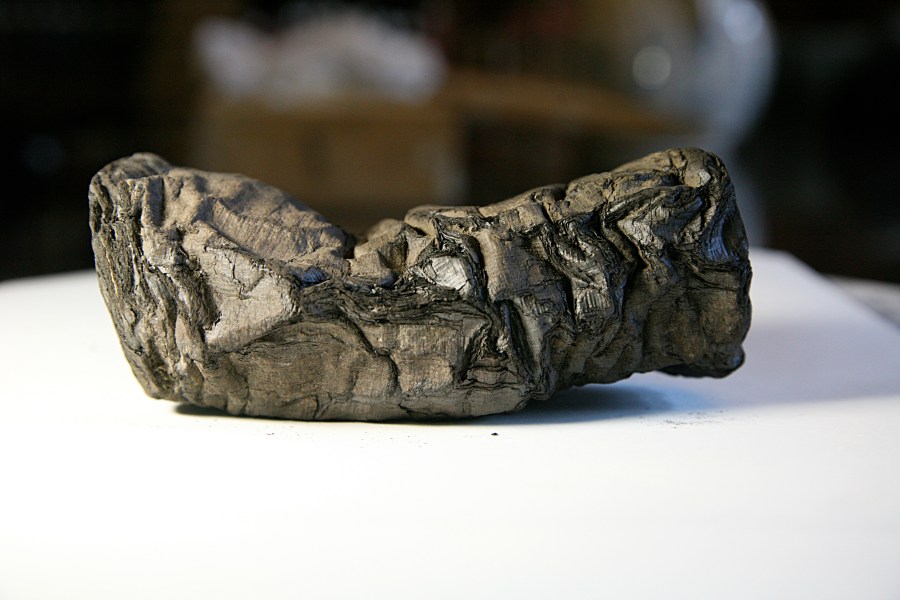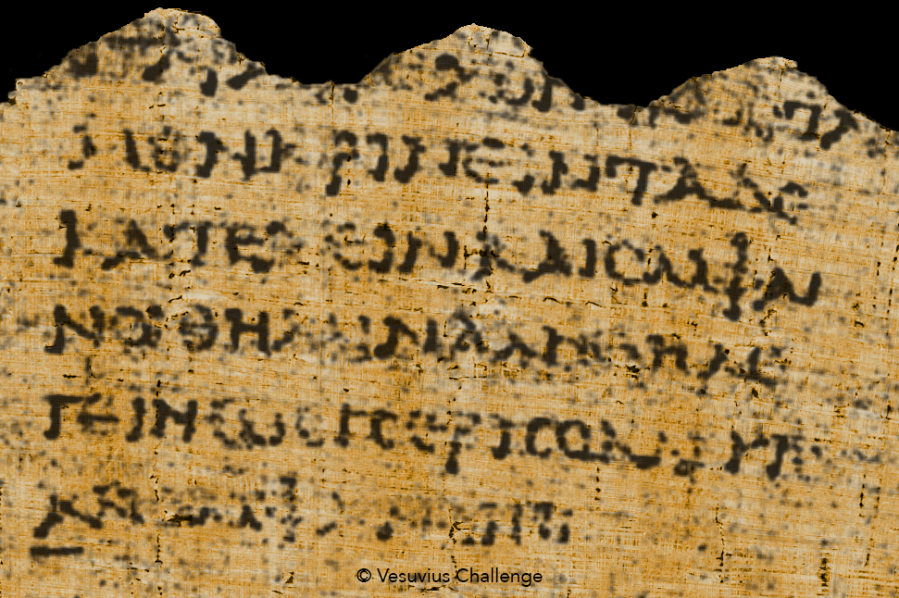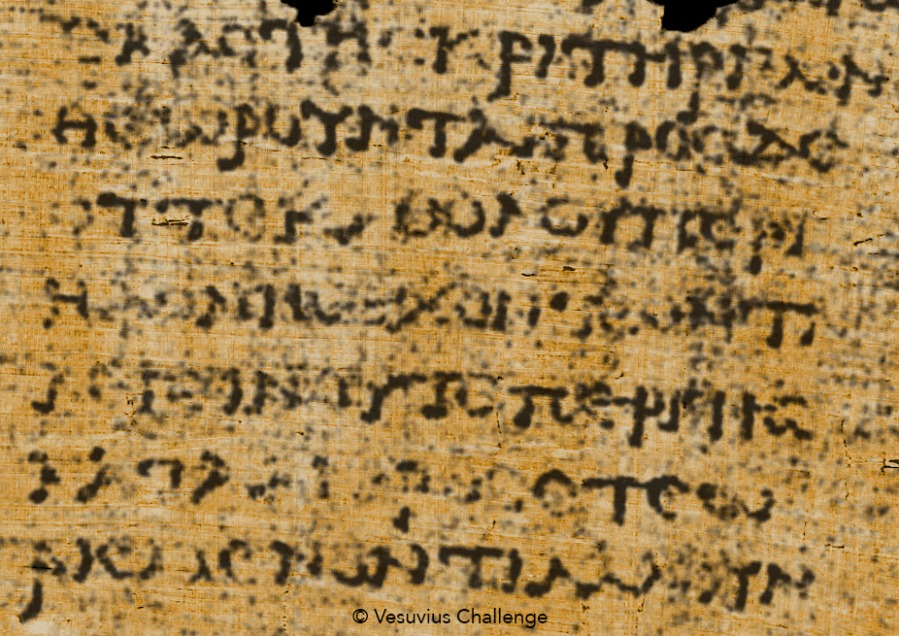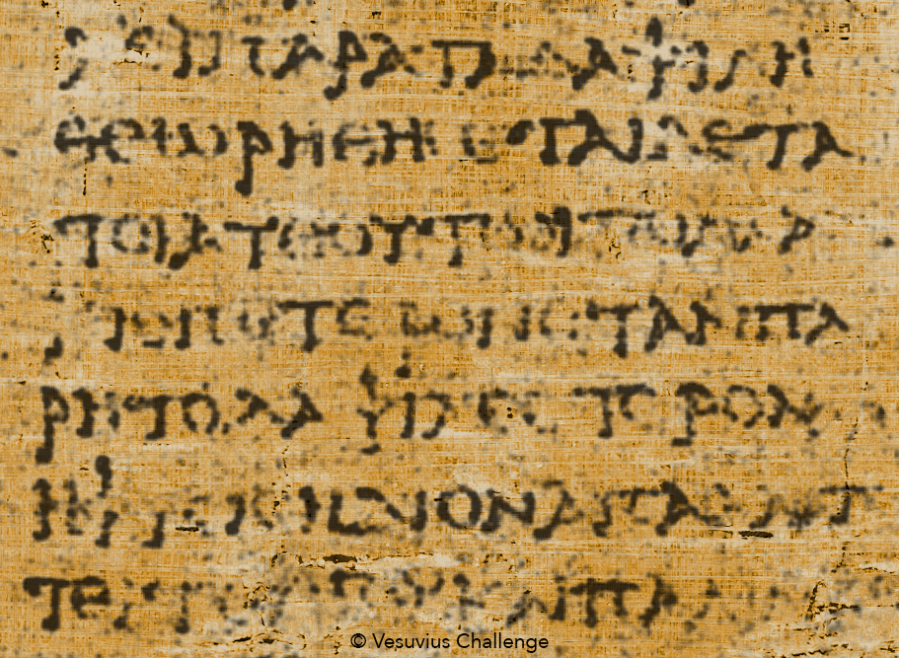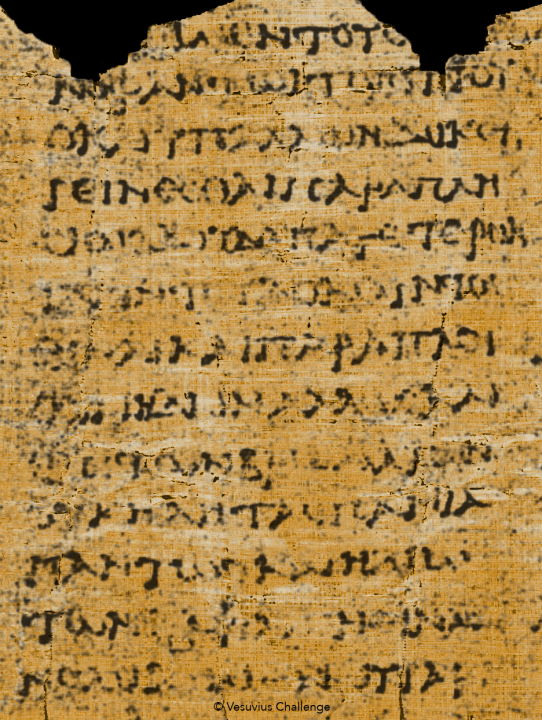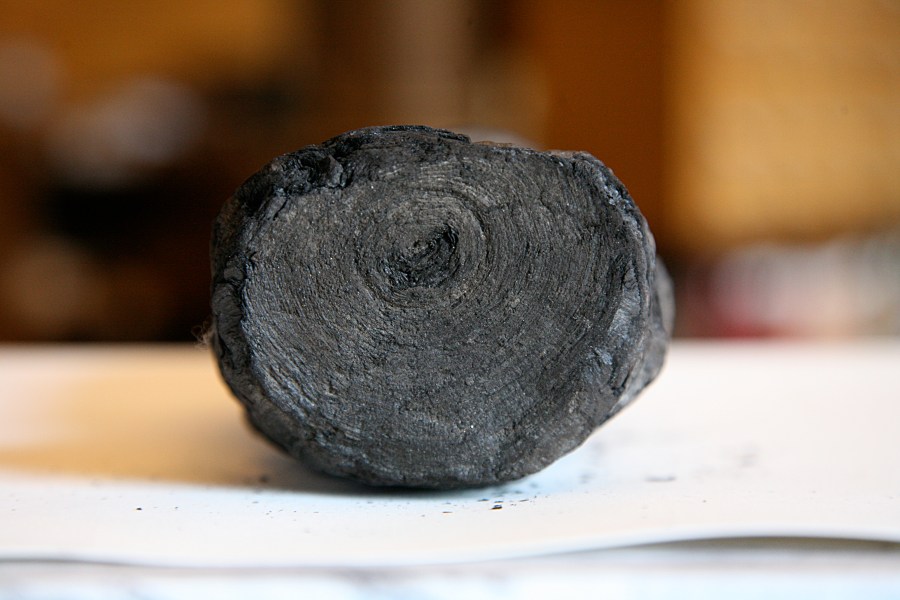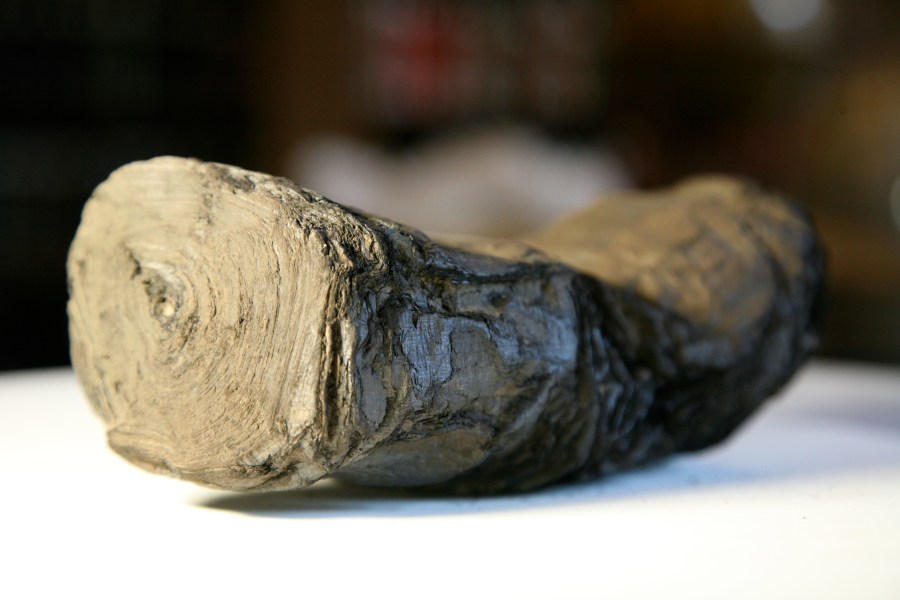Ancient Roman scroll deciphered by AI as part of Vesuvius Challenge
- Ancient Roman scroll was buried during Mount Vesuvius eruption in 79 AD
- Vesuvius Challenge offered $700,000 to team that could decipher it
- Three college students successfully deciphered it using AI

Images of the passages AI detected of the Herculaneum Papyri scroll (Courtesy of The Digital Restoration Initiative, The University of Kentucky)
(NewsNation) — Three college students from the United States, Switzerland and Egypt have accomplished something never done before, deciphering part of an ancient Roman scroll that was buried during the Mount Vesuvius eruption in 79 AD using artificial intelligence.
It was done as part of the Vesuvius Challenge, launched in March 2023, where $700,000 was up for grabs to the team that could resurrect ancient scripts lost in the ashes of the volcanic eruption.
The winning team deciphered more than 2,000 never-before-seen texts from the charred scroll.
The text was Epicurean philosophy on music and food — how those two things brought people pleasure.
“This represents a huge corpus of historical antiquities that if we could recover all of this ancient knowledge, it would almost double the amount of history that is recovered from ancient equities. I think that says a lot about the size of the challenge and the size of the potential that we can achieve by solving this,” Vesuvius Challenge winning submission team lead Youssef Nader said.
The ancient Roman scrolls are in a fragile state, but that’s where AI comes into play. The AI program has been trained to read the ink on both the surface and hidden layers.
As a result, the trio uncovered more than 15 columns of text, which is roughly 5% of one scroll.
“I believe that the goal is that we eventually have models that operate on any kind of scroll regardless of where it was stored, where it was buried or what state it is in,” Nader said.
The Vesuvius Challenge continues this year with a new grand prize. The goal is to read more scrolls using AI. The scroll that was only partially decoded is one of hundreds.






